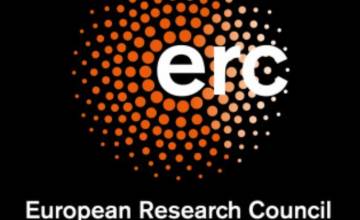JL Brédas, Extraordinary Professor at UMONS, awarded by the British Royal Society of Chemistry
This world expert in the chemistry of novel materials has just been awarded the 2021 Centenary Prize by the prestigious Royal Society of Chemistry.
In 1988, Jean-Luc Brédas was appointed Professor at the University of Mons, where he founded the Laboratory for Chemistry of Novel Materials. He is currently “Extraordinary Professor” at UMONS and also works at the University of Arizona, which he joined in 1999.
It is in this capacity that Prof. Brédas has just received a prestigious award from the British Royal Society of Chemistry, whose vocation, since its creation in 1847, is to develop excellence in the field of chemical sciences.
With 54,000 members worldwide, the Royal Society of Chemistry has awarded Prof. Brédas the 2021 Centenary Prize, which is one of the 2021 Research and Innovation Awards, which, as the name suggests, highlight discoveries and innovations that push the boundaries of science.
The award was given for his decisive contributions to our fundamental understanding of the electronic properties of organic materials for electronics and photonics, and for his excellence in communication.
The award winner’s current work at the University of Arizona is computational in nature. His research group is developing next-generation organic materials with superior electronic, optical and/or magnetic properties that make them suitable for use as active components in devices and appliances, such as transistors, solar cells and light-emitting diodes that are energy efficient.
“The brilliance of synthetic organic chemists in designing and developing almost any organic material is truly amazing,” said the UMONS “Extraordinary Professor”, whose day-to-day aim is “to try to understand new phenomena in organic materials and communicate their chemical and physical intricacies to a broad scientific audience, while simultaneously supporting a more diverse and inclusive community of chemists.”
CV in short
Jean-Luc Brédas obtained both his Bachelor’s degree (1976) and his PhD (1979) at the University of Namur, Belgium. In 1988, he was appointed Professor at the University of Mons, Belgium, where he founded the Laboratory for Chemistry of Novel Materials.
While continuing Extraordinary Professorship tenure in Mons, he moved to the US and joined the University of Arizona in 1999. In 2003, he moved to the Georgia Institute of Technology, where he is Regents’ Professor of Chemistry and Biochemistry and holds the Vasser-Woolley and Georgia Research Alliance Chair in Molecular Design. Between 2014 and 2016, he joined King Abdullah University of Science and Technology (KAUST) as Professor Emeritus and served as Director of the KAUST Solar and Photovoltaics Research and Engineering Center. He returned to Georgia Tech in 2017 before returning to the University of Arizona in 2020.
Jean-Luc Brédas is an elected member of the International Academy of Quantum Molecular Science, the Royal Academy of Belgium, and the European Academy of Sciences. He is the recipient of multiple awards, including the 1997 Francqui Prize, the 2000 Quinquennial Prize of the Belgian National Science Foundation, the 2001 Italgas Prize, the 2003 Descartes Prize of the European Union, the 2010 Charles H. Stone Award of the American Chemical Society, the 2013 David Adler Award in Materials Physics of the American Physical Society, the 2016 Award in the Chemistry of Materials of the American Chemical Society, the 2019 Alexander von Humboldt Research Award, and the MRS 2020 Prize in Theory of Materials. He is an honorary professor at the Institute of Chemistry of the Chinese Academy of Sciences and an adjunct professor of chemistry at the Georgia Institute of Technology and King Abdulaziz University. He has been editor-in-chief of Chemistry of Materials since 2008 and has published more than 1100 papers in peer-reviewed journals, which have been cited more than 115,000 times. His current h-index in Google Scholar is 155.



